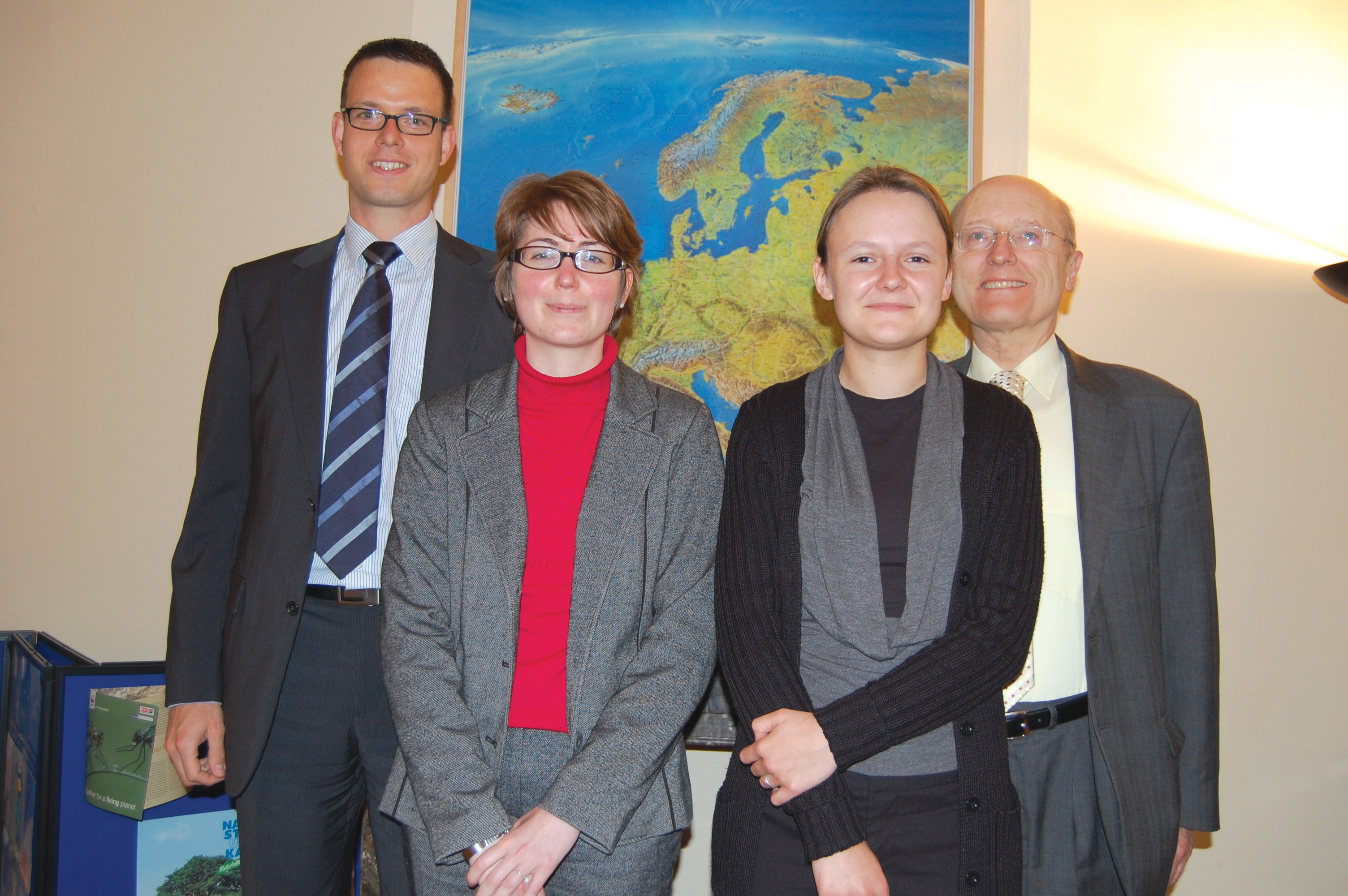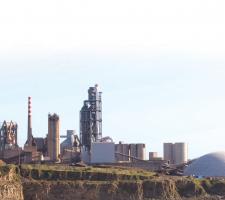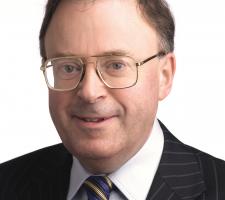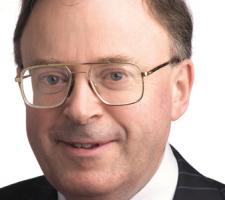
In May the European Aggregates Association appointed a new president. Claire Symes met with Jim O'Brien to find out about his plans for his two year tenure
Spend just a few moments talking to Jim O'Brien and it is clear that he is passionate about the progress of the European aggregates sector. But this drive extends beyond helping to ensure the industry is a profitable one and O'Brien's vision is as much about moving the sector's position in society forward.
This is the basic theme of what he intends to bring to his new role as president of the
O'Brien was formally elected at UEPG president at the delegates' assembly in Oslo in May and is the association's ninth president. Since his election, O'Brien has worked closely with Mertens to smooth the transfer and also to learn the dynamics of the role.
New challenge
The timing of the appointment could not have come at a better time for O'Brien - he retired from
On his experience of the construction materials sector and the benefit it will bring to his appointment with the UEPG, he said, "It is important to have a view of the bigger picture and understand the success parameters in terms of economic, social and environmental factors. There is a need to lobby to prevent legislation that could put the industry out of existence and a wider understanding is vital to put the best case for the quarrying sector forward to all its stakeholders."
Electrical past
Quarrying and aggregates did not form part of O'Brien's original career plan - he studied electrical engineering at University College Dublin, graduating in 1968, and then undertook a masters in power engineering. "I always wanted to be an engineer but it was hard to choose which branch I wanted to go into and, as I enjoyed mathematics, I opted for electrical engineering," he said.
O'Brien was headhunted through the university by Irish Cement. "I didn't know too much about cement at that stage but Irish Cement was the top private sector company in Ireland so presented me with a great career opportunity," he said. "Cement was a utopia for an electrical engineer as there was a lot of heavy power use, but the other opportunity came in the form of the chance to travel through the company's international connections.
"My Father was a Colonel in the British Army and, after fighting in the First World War, served throughout the Middle East and India. He inspired in me a need to travel and find out about other cultures." After a year working in Ireland for the company, O'Brien was seconded to cement plant manufacturer
"It is good to communicate in the same language as others - it opens doors. The ability to pick up languages was very useful when I was sent out to commission plants - first in Denmark and Spain, where I learnt Spanish, and then to Iran where I worked with German, Swiss and Austrian engineers and learnt their language in the process," said O'Brien.
According to O'Brien, his time in Iran was a key one in his professional and personal development. "I was 27 or 28 when I started on the project in Iran and it was definitely a character-building time with the challenges on site and working in a different culture - the local workforce that I was training insisted on working to local customs and sacrificing sheep at vital stages of the project," he explained. "The equipment had also rusted on site and there were problems in getting it to work. This forced me to be resourceful - without the modern comfort of email and mobiles I had to make decisions. With the Sabbath in Iran on a Friday there were only four days available for communication with head office and even then calls had to be booked and made from the company headquarters in Tehran.
"It was a huge challenge but a rewarding one to complete the work and have the chance to travel to places in Iran that even now as a tourist are difficult to visit." O'Brien cites the ability to get on with others as a key skill that he gained during his time in Iran and describes his approach as "winning hearts and minds". This is something that he has taken forward through his career.
On returning to Ireland, he worked on the development of the second phase of the Platin cement works as a senior electrical engineer for CRH, which was formed by the merger of Roadstone and Irish Cement. That was followed by a move into planning and cost management in the Limerick cement plant before a secondment to the Irish Department of Energy. "This gave me an interesting insight into energy policy and politics, as well as the subtle political ways of getting things done," he said.
He then moved into a corporate CRH technical advisory role but one he believes was a very functional one as it combined environmental aspects with strategy and planning. In this role - one that eventually saw him become CRH Group technical advisor for 19 years - he was involved in the international expansion of the business through acquisitions and brought him directly into the quarrying side of the operation.
It was in this role that he started to develop his interest in how the industry interacts with local communities and the environment - an initiative that is well recognised under the term corporate social responsibility (CSR) these days.
"My technical role involved me in every aspect of best practice operation in the quarry as well as the economic pressures and the need to win on every cent," he said. "But I needed to marry this with safety, social and environmental performance, which brought the need to understand corporate responsibilities and legislation." It was this part of his role that first brought him into contact with the UEPG in the early 1990s and led to O'Brien being a key driver in the development of the
O'Brien was also instrumental in CRH's formal reporting of its sustainability efforts and in getting this externally rated by organisations such as Dow Jones and FTSE4Good. "Management was beginning to see this as an important part of corporate governance," he said. "Making money responsibly strengthens our position in the market and raises standards in the industry." CSR is still very much an important development for O'Brien as, in addition to handing over to his CRH successor Colm Bannon, he has set up his own CSR consultancy - Jim O'Brien CSR. "The issues concerning CSR affect almost every industry," he said.
Presidential plans
Although he has set up his new consultancy, for the next two years he says the UEPG is his top priority.
"Denis did a very good job building up the association's focus on biodiversity and in being more proactive during his presidency and this is something I intend to continue with," he said. "He also worked to build up the team in Brussels and we now have a very talented operation that is keen to develop under Antony Fell's guidance as secretary general.
"What I am hoping to bring to the association is a greater focus on sustainability. Two years is a short time to do this so I have tried to hit the ground running to take this forward. Sustainability is a very broad subject that covers economic, environmental and social issues. I am particularly passionate about raising the safety performance standards in the industry.
"The economic side has really been brought to the fore by the current economic climate, which is presenting some very real challenges to the industry. Nonetheless, the environmental - including the biodiversity focus - and the safety and social issues are still very important. There are indeed lots of challenging fronts to the quarry face." O'Brien added that the UEPG has been very successful on previous lobbying activities because it is focused on real issues.
"The association is also looking to expand its representation of the European aggregates industry and we are working for example with the newly formed Bulgarian aggregates association to help it become part of the UEPG. A number of other members are in the process of transformation - we are encouraging Poland to become a full UEPG member and Greece is only currently represented by
"We are also looking to work with the Balkan and Baltic states, as well as Hungary. UEPG has an ambition to represent the whole of Europe as a broader membership adds to its lobbying power and benefits the industry at national level by giving companies a route to lobbying in Brussels." O'Brien is also keen to develop stronger links with the US-based National Stone, Sand and Gravel Association and similar associations in Asia, Africa and Australia. "There is always something to learn about this industry and tapping into the knowledge of our member associations and other associations could be the key to finding better solutions for the whole sector," he said.
During the interview with O'Brien it is obvious that the drive started by his UEPG presidential predecessor Mertens will not just be continued but be taken forward with real passion.











